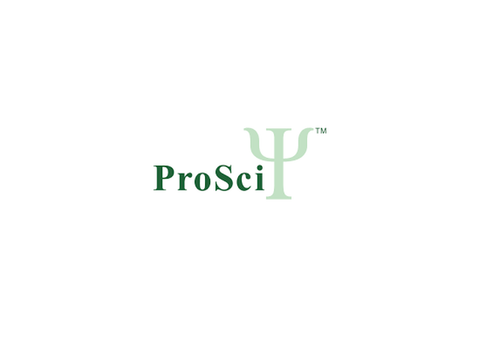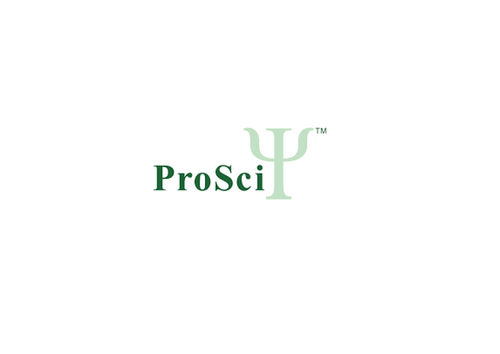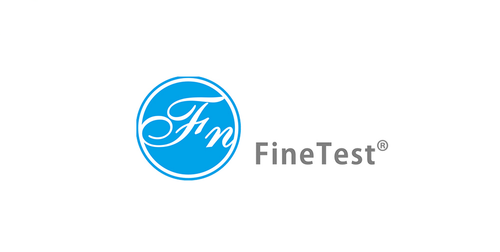Product Description
Bit1 Antibody | 3605 | ProSci
Host: Rabbit
Reactivity: Human, Mouse
Homology: Predicted species reactivity based on immunogen sequence: Bovine: (94%)
Immunogen: Bit1 antibody was raised against a 16 amino acid synthetic peptide from near the center of human Bit1.
The immunogen is located within amino acids 80 - 130 of Bit1.
Research Area: Apoptosis
Tested Application: E, WB, IHC-P, IF
Application: Bit1 antibody can be used for the detection of Bit1 by Western blot at 1 - 4 μg/mL. Antibody can also be used for immunohistochemistry starting at 10 μg/mL. For immunofluorescence start at 20 μg/mL.
Antibody validated: Western Blot in human samples; Immunohistochemistry in human samples and Immunofluorescence in human samples. All other applications and species not yet tested.
Specificiy: N/A
Positive Control 1: Cat. No. 1224 - Daudi Cell Lysate
Positive Control 2: Cat. No. 1308 - Human Small Intestine Tissue Lysate
Positive Control 3: Cat. No. 11-801 - Human Small Intestine Tissue Slide
Positive Control 4: N/A
Positive Control 5: N/A
Positive Control 6: N/A
Molecular Weight: N/A
Validation: N/A
Isoform: N/A
Purification: Bit1 Antibody is affinity chromatography purified via peptide column.
Clonality: Polyclonal
Clone: N/A
Isotype: IgG
Conjugate: Unconjugated
Physical State: Liquid
Buffer: Bit1 Antibody is supplied in PBS containing 0.02% sodium azide.
Concentration: 1 mg/mL
Storage Condition: Bit1 antibody can be stored at 4˚C for three months and -20˚C, stable for up to one year. As with all antibodies care should be taken to avoid repeated freeze thaw cycles. Antibodies should not be exposed to prolonged high temperatures.
Alternate Name: Bit1 Antibody: BIT1, PTH2, CGI-147, BIT1, Peptidyl-tRNA hydrolase 2, mitochondrial, Bcl-2 inhibitor of transcription 1, PTH 2
User Note: Optimal dilutions for each application to be determined by the researcher.
BACKGROUND: Bit1 Antibody: Adhesion to extracellular matrix regulates cell survival through both integrin engagement and appropriate cell spreading. Anoikis is the molecular mechanism of apop-tosis induced by integrin detachment. Bit1 (Bcl-2 inhibitor of transcription 1) was recently identified as being involved in this process. Bit1 is a mitochondrial protein that is released into the cytoplasm upon onset of apoptosis where it forms a complex with AES, a small Groucho/transducin-like enhancer of split (TLE) protein and induces caspase-independent apoptosis. Both AES and TLE proteins are transcriptional co-repressors that play important roles in neurogenesis, segmentation, and sex determination. It has been suggested that Bit1-AES complexes turn off a survival-promoting gene transcription program controlled by TLE. Interestingly, apoptosis of cells transfected with Bit1 and AES could be inhibited if the cells were allowed to attach to fibronectin through the alpha5beta1 integrin suggesting that the Bit1-AES pathway contributing to anoikis is regulated by integrins, and in particular, the alpha5beta1 integrin.
 Euro
Euro
 USD
USD
 British Pound
British Pound
 NULL
NULL











![Bit1 (IN) Antibody [Polyclonal] | PC-523 Bit1 (IN) Antibody [Polyclonal] | PC-523](https://cdn11.bigcommerce.com/s-452hpg8iuh/images/stencil/500x659/products/391484/569947/klogo__76714.1643661101__32861.1644059269.png?c=2)




